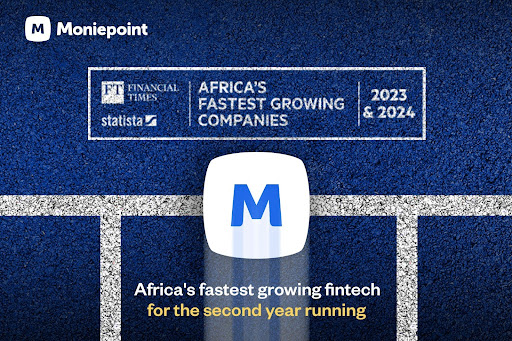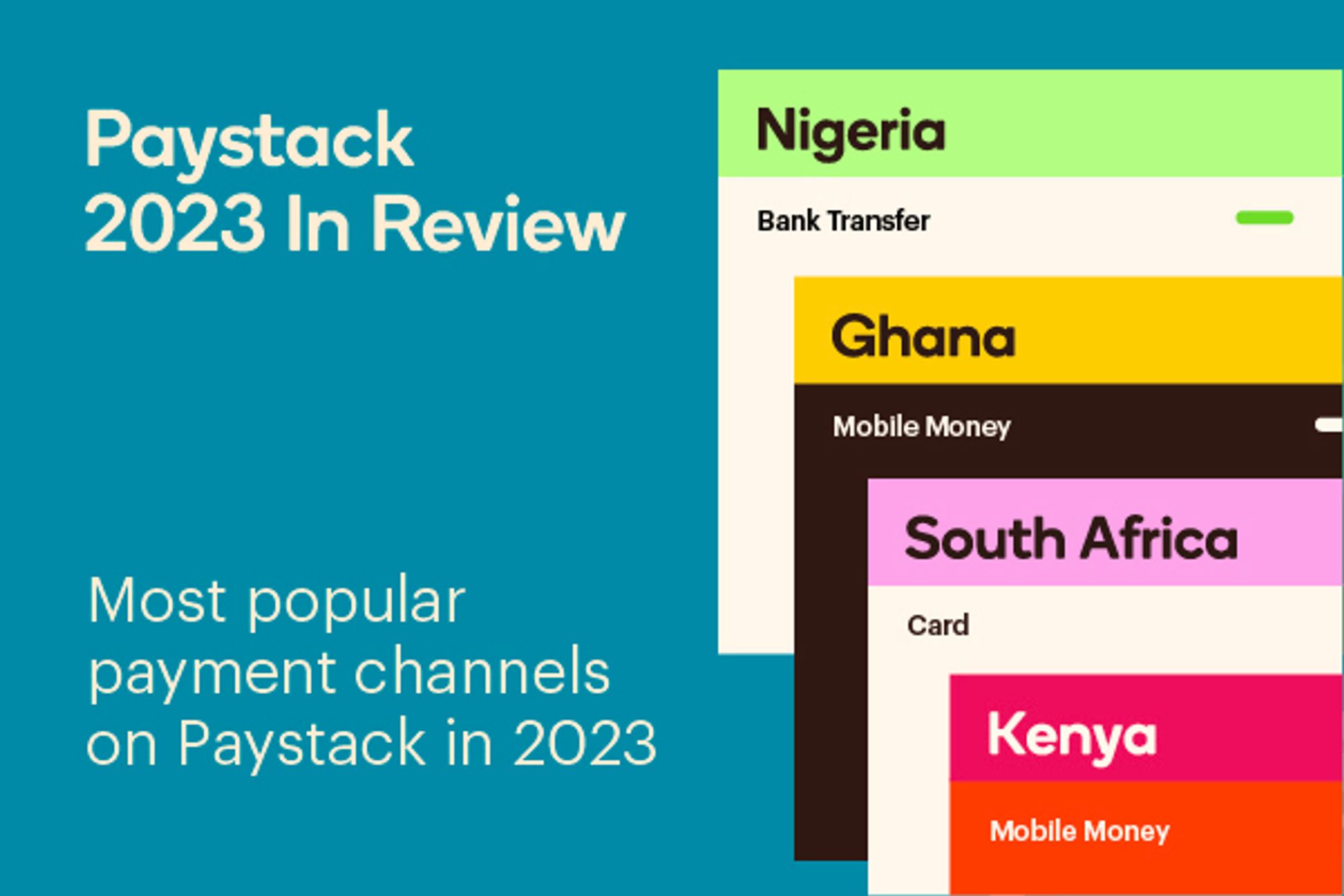Newsletters
👨🏿🚀TechCabal Daily – Gro shuts down


Happy new month ☀️
From scattered offices to a central hub, Innovation City is changing how South Africa’s tech ecosystem works.
It currently houses 10 early-stage startups, 17 high-growth-stage startups, 18 scaleups (including a Swedish unicorn) and nine venture capital firms. Read how these startups, VCs, and corporates are thriving there.
Gro Intelligence shuts down despite funding efforts
Another startup in Kenya has closed its doors.
Gro Intelligence, an agricultural data company founded in 2012 and based in New York and Nairobi, is shutting down months after replacing CEO and founder Sara Menker and raising a last-minute funding round in March.
The company will shut down because it failed to secure further investment from new and existing investors. According to a source of the news agency, the company faced other problems suc as a mismatch between its products and market demands which led to financial troubles for the company.
Despite promoting its AI insights and vast data resources, it struggled with consistent revenues, relying heavily on its major client, Unilever. The company also had trouble with wrong hires and didn’t have a chief financial officer (CFO) until recently.
While the company raised a total of $117 million, including $85 million in a Series B round backed by Intel Capital and Africa Internet Ventures, Gro Intelligence’s financial troubles became public in February 2024 with reports of missed payroll and pension payments.
In March despite raising more funding which reportedly could last till June or July, Gro Intelligence downsized its staff by 60% and now faces lawsuits from ex-employees claiming unfair dismissal. Gro Intelligence is also reportedly being investigated by the Securities Exchange Commission (SEC) over fraud allegations.
The company which analysed data from government, weather, and finance agencies to provide practical guidance for agricultural businesses, will now close its offices in New York and Nairobi with just a few people to help wind down.
It will join a growing list of well-funded startups to shut down in Kenya. These include iProcure, B2B e-commerce startup Zumi, and fulfilment startup Sendy which is presently in administration.
Moniepoint is Africa’s fastest-growing fintech
The Financial Times has ranked Moniepoint as Africa’s fastest-growing fintech based on its absolute and compound growth rate. Read more about it here.
First Bank employee on the run after diverting $29 million
First Bank, a leading Nigerian bank is in court to reclaim funds allegedly diverted by an employee. These funds were distributed to the employee’s wife’s account and several accounts were considered as main recipients of the diverted funds.
People familiar with the situation told TechCabal that the initial amount found to be diverted was about ₦12 billion ($8.9 million), but now stands at around ₦40 billion ($29 million).
The alleged employee who carried out the diversion is identified as Tijani Muiz Adeyinka. Adeyinka worked as a manager on the electronic products team at a head office in Iganmu, Lagos, according to court documents.
A First Bank employee told TechCabal that Adeyinka could successfully carry this “heist” out as he was authorised to handle customer reversals; he also managed an account which he used for processing these reversals and credit merchant accounts.
Muiz allegedly used his authority to credit customer reversal requests to a merchant account he controlled. As the final line of authorisation on the team, he didn’t require further approvals.
The fraudulent activity went unnoticed for almost two years without detection until a customer made a complaint which escalated to the bank’s internal control unit. The control unit discovered several suspicious transactions and reported them to the police.
“It was discovered that he made some fraudulent transactions to his wife’s account domiciled with Zenith Bank, which in turn transferred to other beneficiaries totalling thirty-four accounts which also gave birth to second beneficiaries domiciled with other banks totalling 1,190 accounts,” read a statement from the investigating police officer in charge of the case signed March 26, 2024.
Within the period of April 4–8, three court orders from the Federal High Court in Lagos were granted to freeze hundreds of accounts suspected of possessing the stolen funds.
An anonymous email sent to TechCabal alleged that some of the stolen money was used to purchase stable coin USDT from some crypto traders. These traders insisted they were unaware of the fraudulent origin of the funds and only sold the USDT. As a result of this involvement, their bank accounts have been restricted and are also caught in the middle of a legal dispute with the bank.
Fraud continues to plague Nigeria’s financial sector, despite a decrease in cases in the first quarter of 2024. A 2023 BusinessDay reported that Access Bank suffered a ₦6.15 billion ($4.6 million) in fraud, while Fidelity Bank lost ₦2.5 billion across three separate incidents.
Collect payments anytime anywhere with Fincra
Are you dealing with the complexities of collecting payments from your customers? Fincra’s payment gateway makes it easy to accept payments via cards, bank transfers, virtual accounts and mobile money. What’s more? You get to save money on fees when you use Fincra. Get started now.
South Africa’s ANC falls short of parliamentary majority
On May 29, our brothers and sisters in South Africa headed to the polls to elect new sets of leaders across the National Assembly as well as the provincial legislature in each of the country’s nine provinces.
In the elections, which saw the lowest voter turnout in South Africa’s 30-year democratic history, the ruling party, the African National Congress (ANC), secured only 40.19% of the total vote cast, falling short of the 50% vote needed to form a government.
Sidebar: To form a government on its own, a party needs to receive more than 50% of the total votes.
The ANC’s 40% vote means that it will need to buddy up with smaller opposition parties to maintain its majority and continue governing the country.
Should the ANC decide to ally with opposition parties, the choice comes with significant tradeoffs, which may include jettisoning President Cyril Ramaphosa’s program of economic reform. However, the ANC is faced with a second choice of seeking alliances with its biggest political rival, the Democratic Alliance.
This year’s election presents the biggest shock in South Africa’s 30-year democracy. Since the Mandela-led ANC freed the nation of apartheid three decades ago, it has never failed to secure a parliamentary majority in elections. This year, that story was rewritten.
While the news comes as a shock to many, the vote dilution was no surprise to a certain 82-year-old former president, Jacob Zuma, whose newly formed party, uMkhonto weSizwe, ate into the ANC’s support. The party won almost 15% of the vote in the May 29 elections, just five months after being formed, stripping the ANC of its parliamentary majority for the first time.
The vote dilution comes as sweet revenge for the South African former president who was ousted—and replaced with Cyril Ramaphosa—after nine scandal-marred years of rule.
With the ANC needing the support of at least one rival party to continue ruling the country, Zuma’s partycould offer the ANC its much-needed lifeline.
What were the most popular payment channels on Paystack in 2023?
Find the answer here 👉🏾 paystack.com/2023
BioNTech secures $145 million for African vaccine factories
Remember BioNTech, the company that teamed up with Pfizer to develop a vaccine when COVID-19 rocked our world?
The COVID-19 vaccine maker is on to greater strides.
Last week, BioNTech secured $145 million to help speed up the development of a factory in Kigali that will produce affordable vaccines to fight malaria, monkeypox, tuberculosis, or other health threats in Africa.
BioTech, which raised funds from a global coalition against infectious diseases—Coalition for Epidemic Preparedness Innovations (Cepi)—says it “intends to work jointly to rapidly respond to outbreaks on the African continent caused by known viral threats, or an as-yet-unknown pathogen with epidemic or pandemic potential.”
BioNTech and Cepi said, in a joint statement, on Wednesday, May 29, 2024, that the money was to hasten the development of the factory in Kigali and not necessarily for vaccine development. Per Cepi chief executive officer, Richard Hatchett, the funds will “add to the capacity to produce material for research and clinical trials for third parties.” The Biontech-Cepi collaboration is part of a larger collaboration as the German biotech company constructs an mRNA vaccine factory in Kigali.
The company’s $145 million raise for its African vaccine plant comes on the back of its$682 million acquisition of Tunisian-born AI startup Instadeep in January last year. Since 2018, the company has raised over $1.2 billion. Cepi’s proposed funding adds to the $90 million it granted BioNTech to support the development of mpox vaccine candidates.
Infinix’s new Note-Worthy device
Discover the future of charging with the all-round FastCharge 2.0 technology. Take Charge 24/7 with the Infinix NOTE 40 Series. Learn more now!
- TechCabal is set to announce its first set of speakers for the second edition of its Moonshot Conference which is set for October 9–11, 2024, at the Eko Convention Centre, Lagos, Nigeria. Moonshot will assemble Africa’s biggest thinkers, players and problem solvers on a global launchpad for change. If you want to join the stakeholders in Africa’s tech ecosystem for three days of insightful conversations, then get an early-bird ticket at 20% off.
- HR Crunch is an event for young professionals, fresh graduates, and entrepreneurs to gain insights from industry experts and network. The event features panel sessions centered around Fashion and Arts, Sports and Health, Media and Entertainment, and Recruitment Technology. All registrants can participate in interactive Q&A sessions, engaging games, and other inclusive activities. There are two ticket options available: attendees and job seekers. Both tickets offer the same perks, but job seeker tickets include access to a speed job interview, providing a unique opportunity for career advancement. Tickets are free at https://tix.africa/discover/hrcrunch.
Here’s what we’ve got our eyes on
Want more of TechCabal? Sign up for our insightful newsletters on the business and economy of tech in Africa.
- The Next Wave: futuristic analysis of the business of tech in Africa.
- Entering Tech: tech career insights and opportunities in your inbox every Wednesday at 3 PM WAT.
- In a Giffy: business decisions powered by data-driven insights and analysis you can trust.
- TC Scoops: breaking news from TechCabal
P:S If you’re often missing TC Daily in your inbox, check your Promotions folder and move any edition of TC Daily from “Promotions” to your “Main” or “Primary” folder and TC Daily will always come to you.













